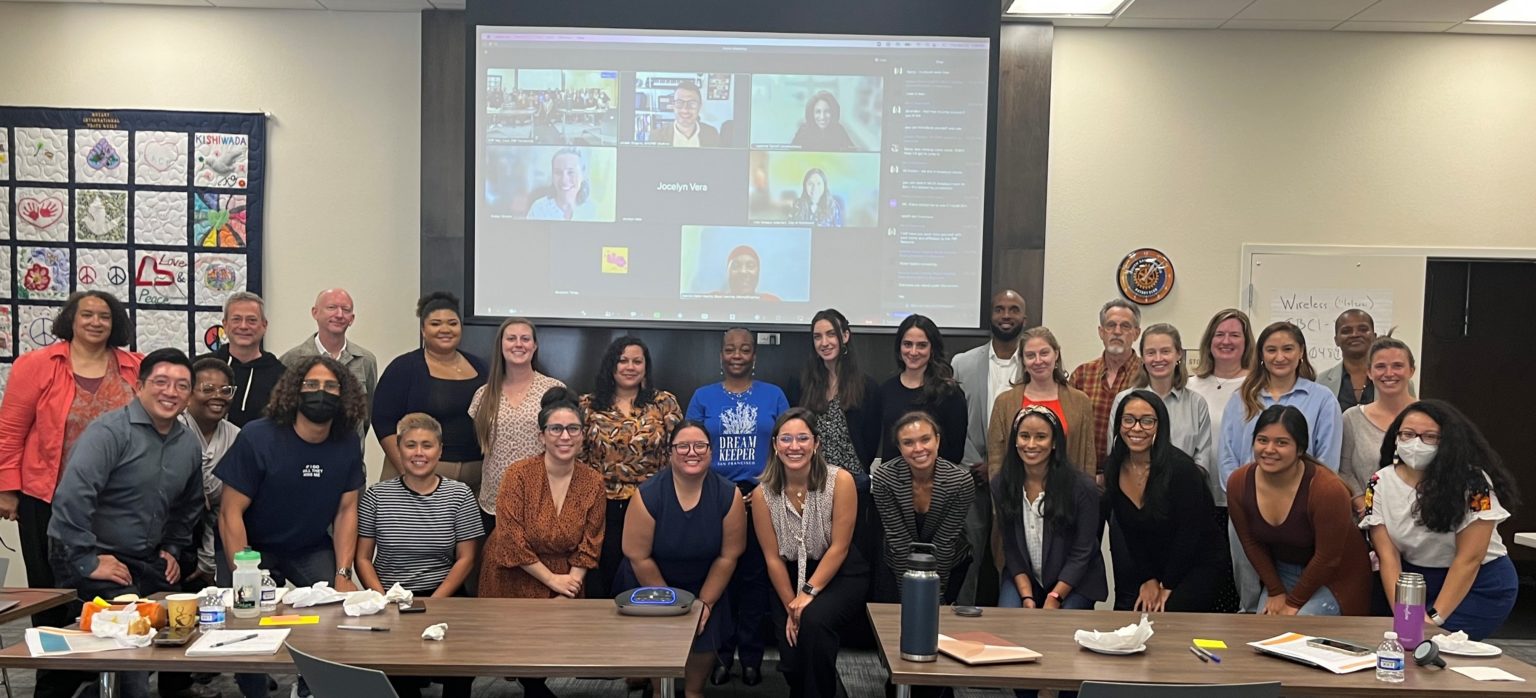Partnership for the Bay’s Future (PBF) is an SFF initiative to advance housing solutions. PBF works to produce, preserve, and protect affordable homes in the Bay Area and to ensure our region remains a diverse place where all people are welcome and can thrive. Benjamin Toney is a Partnership for the Bay’s Future Policy Grant Fellow, working towards solving the affordable housing crisis by forging community and government partnerships to implement equitable policies.
He shared a blog reflecting on his experience, and a portion is excerpted below:
Forging relationships across a region is an effective tool in expediting the development of equitable policies, but critical work is still needed to facilitate inter-jurisdictional coordination, cooperation, and information sharing. The Policy Grant’s innovative approach aims to reach that goal by housing a network of experts across sectors throughout the region to share resources, research, and tools to serve the public in a collaborative fashion. This network represents an opportunity to accomplish something special in the Bay Area as well as an opportunity to create intraregional leadership models that can be adapted and applied beyond these nine counties.
So much insightful knowledge was learned and shared at this convening, and these are my three key takeaways:
1. Policy Coordination Must Prioritize Racial Equity
We urgently need to prevent homelessness, protect tenants, and produce and preserve affordable housing to keep pace with population and job growth, impede displacement, and balance power. However, conventional technocratic systems have been embedded and caused racial disparity in housing outcomes across each of these objectives. In order to prioritize racial equity in housing policies, we need to conduct explicit racial analysis and evaluation of who receives the benefits, who gets assigned the costs, and who remains excluded. And because housing is so intimately intertwined with transportation, health, employment and economic opportunities, this work is important because housing justice can have cascading effects on racial disparities in all these areas. Many jurisdictions are very early in the process of reckoning with their historical and current participation in racial disparity, thus prioritizing racial justice in housing will take dedicated ongoing commitment and leadership from every part of the Bay Area.
Read more about Benjamin’s experience.
Learn more:
- Read more about Partnership for the Bay’s Future
- Read more about SFF’s All-in on Housing work.


